Политический класс №39 - [10]
(Автор: Евгений Огурцов)
The highlights of the March edition of Politichesky Klass
This issue»s Chronicle of Political Thought column confirms that the configuration of power under Russia»s new president was in the focus of expert commentaries and political discussion in Russia in the second half of February and on through early March. The discussion is becoming more heated and broad as the next congress of the pro-Kremlin United Russia party draws nearer, and so does the May inauguration of Dmitry Medvedev who will then form the Cabinet. The opposition is still insisting that the way the power is being handed over is Зunheard-ofИ and Зutterly impossible;И government-controlled TV channels are trying hard to balance Vladimir Putin»s and Medvedev»s air time; while political analysts and experts are trying to fit the de-facto tandem in the current Russian realities. Opening this issue is an article by historian Vladimir Degoyev who reflects on ways to improve Russia»s foreign policy after the Kosovo precedent. He brings back outstanding achievements in the history of Russian diplomacy and the recent hard times it has survived. The author believes that the present Foreign Ministry has the best human resources of all government institutes, in terms of general professional training, skills, knowledge, work experience and commitment to their goals. Therefore, members of the Russian diplomatic corps should be given more freedom in making top-level decisions.Lawyer Ludvig Karapetian believes that the Russian Federation as the legal successor of the Soviet Union must use its priority right to recognise independence of such self-proclaimed states as Abkhazia, Nagorny Karabakh, South Ossetia and Transdniester. He says this way Russia will go by the Soviet law which stipulated a perfectly legitimate solution to the problem of the former constituent territories» status if they seceded from the Soviet Union.Historian Kirill Solovyov argues that the conflicts emerging in the so-called self-proclaimed states within the former Soviet republics could only be settled if Russia were able to protect its own interests in the post-Soviet region and did not abandon those who wanted to come under its protection. On the other hand, in trying to settle such conflicts, Russia will be inevitably facing double standards imposed by the West. However, the author believes that Russia will gradually realize it will need to find innovative approaches and make efforts way out of the ordinary to build a new Eurasian union state upon the ruins of the former Soviet Union.The publication of an article by political analyst Osmonakun Ibrahimov is timed to coincide with the third anniversary of the so-called ЗtulipИ revolution in Kyrgyzstan. Ibrahimov, who was a senior official in former President Askar Akayev»s team, proposes his own interpretation of President Akayev»s political portrait, analysing the strong points and inevitable blunders of the first leader of independent Kyrgyzstan.Economist Yury Godin analyses the outcome of the gradual integration of Russia and Belarus into a union state, announced 12 years ago. According to him, Russia»s dislike of the Belarusian president, whether openly displayed by the right-wing political blocs and major businessmen, or secret but obvious on the part of Russian lawmakers and government officials, increases a hundredfold the Belarusian opposition»s chances of success at the next presidential elections. It also signals to the West a go-ahead to keep harassing Alexander Lukashenko and his team. All the above greatly harms Russia»s interests, the author concludes.Political analyst Yevgeny Ogurtsov expresses the opposite opinion of the current political system in Belarus and its government»s standpoint on its integration with Russia. According to him, the Belarusian government does not want to move closer to the European Union or become integrated with Russia, because it is not interested in any radical political changes in the country. Which means Russia»s political elite should not stake too much on the Belarusian powers-that-be. It is time we begin forging dialogue with other political forces in Belarus, for example the Social-Democratic Party.Political analyst Yury Storchak cites interesting opinion polls conducted in Ukraine and Russia about what the two countries» residents expect of integration. For most Ukrainians rapprochement with Russia means a no visa regime, which they think is enough to go and see relatives or find a job in Russia. As for cultural exchange, they think it is also part of a free travel regime. Ukrainian citizens are not interested in a common currency, a common army or common government bodies. They do not want to develop relations with Russia beyond free travel and a relatively free circulation of goods and services.Political analyst Roman Manekin offers a comical interpretation of stereotypes dominating traditional Ukrainian mentality. According to him, modern Ukraine is plagued by a philistine world outlook, which is the root of difference between different regions of the country. He writes that a potential split of Ukraine is rooted in its very statehood, because the immediate needs of the central and western regions» residents, with their narrow devotion to material prosperity, is in controversy with the interests of people in the east employed in resource-intensive production.The issue ends with the traditional ratings of Russia»s top politicians and book reviews.

В книге рассказывается история главного героя, который сталкивается с различными проблемами и препятствиями на протяжении всего своего путешествия. По пути он встречает множество второстепенных персонажей, которые играют важные роли в истории. Благодаря опыту главного героя книга исследует такие темы, как любовь, потеря, надежда и стойкость. По мере того, как главный герой преодолевает свои трудности, он усваивает ценные уроки жизни и растет как личность.

В книге рассказывается история главного героя, который сталкивается с различными проблемами и препятствиями на протяжении всего своего путешествия. По пути он встречает множество второстепенных персонажей, которые играют важные роли в истории. Благодаря опыту главного героя книга исследует такие темы, как любовь, потеря, надежда и стойкость. По мере того, как главный герой преодолевает свои трудности, он усваивает ценные уроки жизни и растет как личность.

В книге рассказывается история главного героя, который сталкивается с различными проблемами и препятствиями на протяжении всего своего путешествия. По пути он встречает множество второстепенных персонажей, которые играют важные роли в истории. Благодаря опыту главного героя книга исследует такие темы, как любовь, потеря, надежда и стойкость. По мере того, как главный герой преодолевает свои трудности, он усваивает ценные уроки жизни и растет как личность.

В книге рассказывается история главного героя, который сталкивается с различными проблемами и препятствиями на протяжении всего своего путешествия. По пути он встречает множество второстепенных персонажей, которые играют важные роли в истории. Благодаря опыту главного героя книга исследует такие темы, как любовь, потеря, надежда и стойкость. По мере того, как главный герой преодолевает свои трудности, он усваивает ценные уроки жизни и растет как личность.
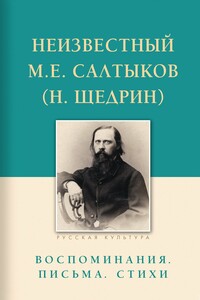
Михаил Евграфович Салтыков (Н. Щедрин) известен сегодняшним читателям главным образом как автор нескольких хрестоматийных сказок, но это далеко не лучшее из того, что он написал. Писатель колоссального масштаба, наделенный «сумасшедше-юмористической фантазией», Салтыков обнажал суть явлений и показывал жизнь с неожиданной стороны. Не случайно для своих современников он стал «властителем дум», одним из тех, кому верили, чье слово будоражило умы, чей горький смех вызывал отклик и сочувствие. Опубликованные в этой книге тексты – эпистолярные фрагменты из «мушкетерских» посланий самого писателя, малоизвестные воспоминания современников о нем, прозаические и стихотворные отклики на его смерть – дают представление о Салтыкове не только как о гениальном художнике, общественно значимой личности, но и как о частном человеке.
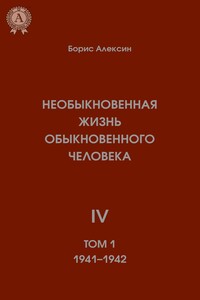
«Необыкновенная жизнь обыкновенного человека» – это история, по существу, двойника автора. Его герой относится к поколению, перешагнувшему из царской полуфеодальной Российской империи в страну социализма. Какой бы малозначительной не была роль этого человека, но какой-то, пусть самый незаметный, но все-таки след она оставила в жизни человечества. Пройти по этому следу, просмотреть путь героя с его трудностями и счастьем, его недостатками, ошибками и достижениями – интересно.
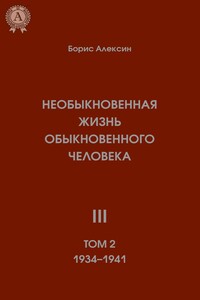
«Необыкновенная жизнь обыкновенного человека» – это история, по существу, двойника автора. Его герой относится к поколению, перешагнувшему из царской полуфеодальной Российской империи в страну социализма. Какой бы малозначительной не была роль этого человека, но какой-то, пусть самый незаметный, но все-таки след она оставила в жизни человечества. Пройти по этому следу, просмотреть путь героя с его трудностями и счастьем, его недостатками, ошибками и достижениями – интересно.
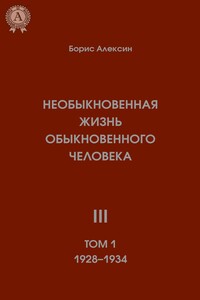
«Необыкновенная жизнь обыкновенного человека» – это история, по существу, двойника автора. Его герой относится к поколению, перешагнувшему из царской полуфеодальной Российской империи в страну социализма. Какой бы малозначительной не была роль этого человека, но какой-то, пусть самый незаметный, но все-таки след она оставила в жизни человечества. Пройти по этому следу, просмотреть путь героя с его трудностями и счастьем, его недостатками, ошибками и достижениями – интересно.
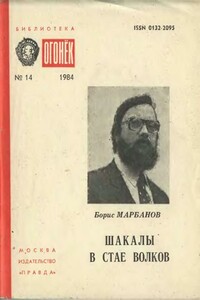
Борис Владимирович Марбанов — ученый-историк, автор многих научных и публицистических работ, в которых исследуется и разоблачается антисоветская деятельность ЦРУ США и других шпионско-диверсионных служб империалистических государств. В этой книге разоблачаются операции психологической войны и идеологические диверсии, которые осуществляют в Афганистане шпионские службы Соединенных Штатов Америки и находящаяся у них на содержании антисоветская эмигрантская организация — Народно-трудовой союз российских солидаристов (НТС).